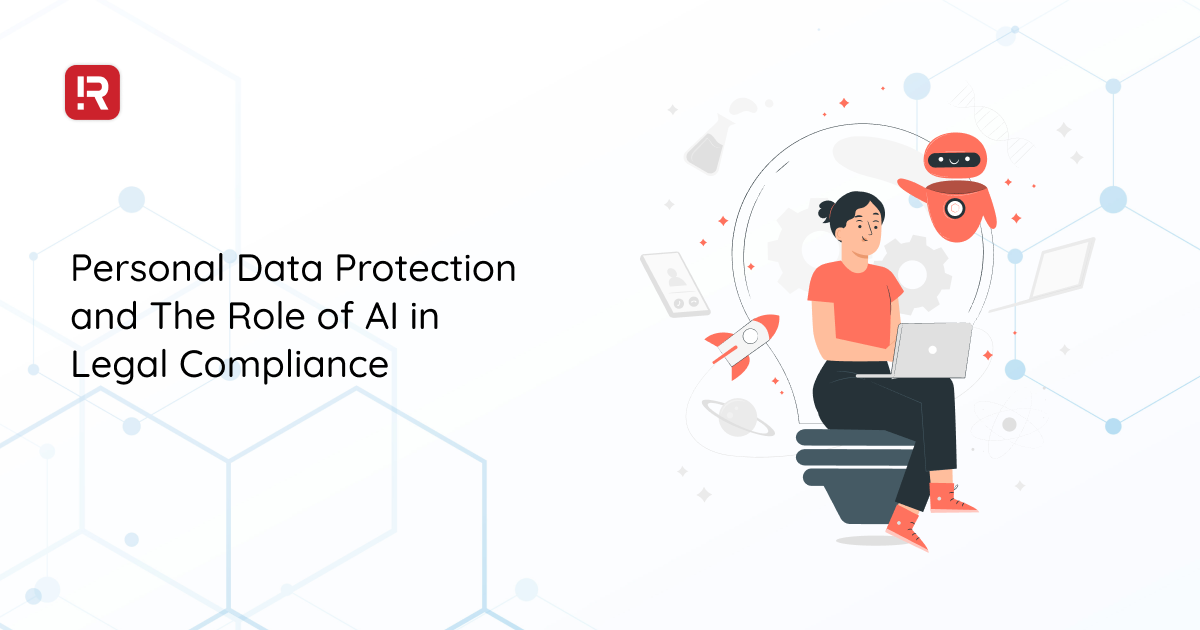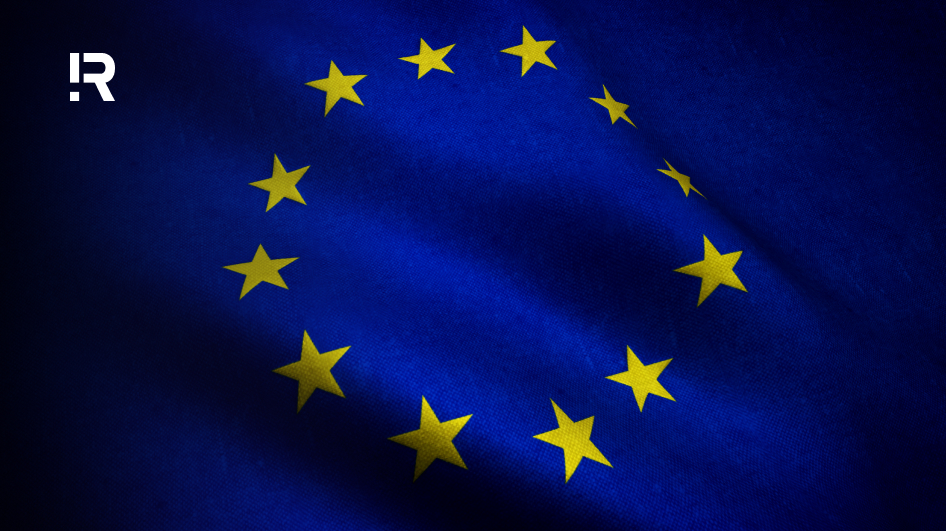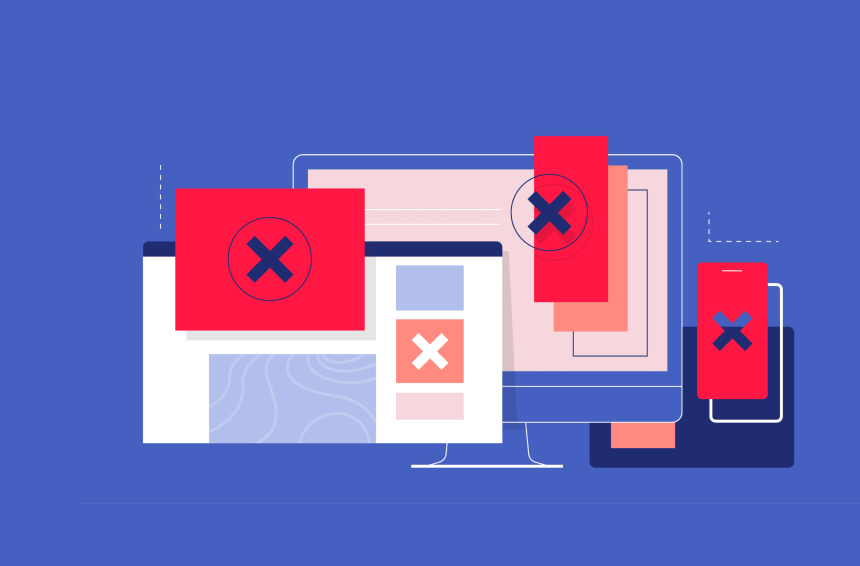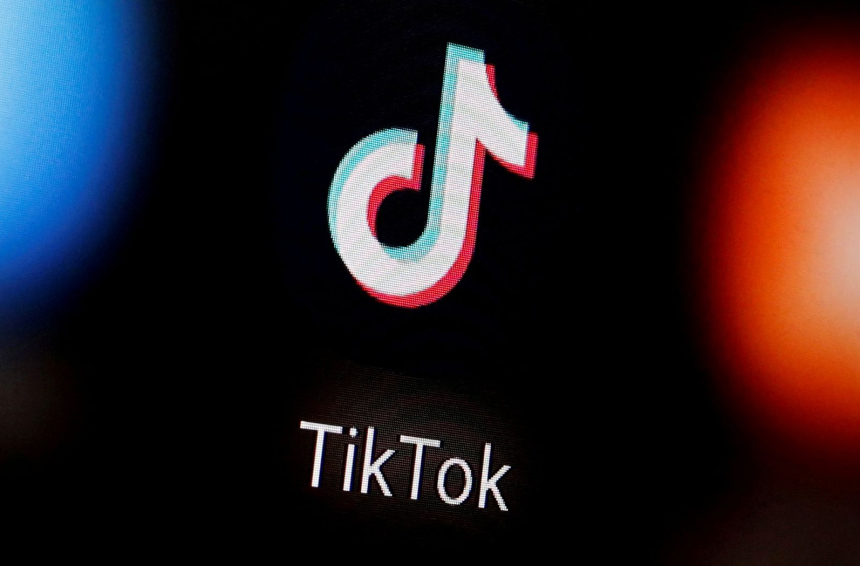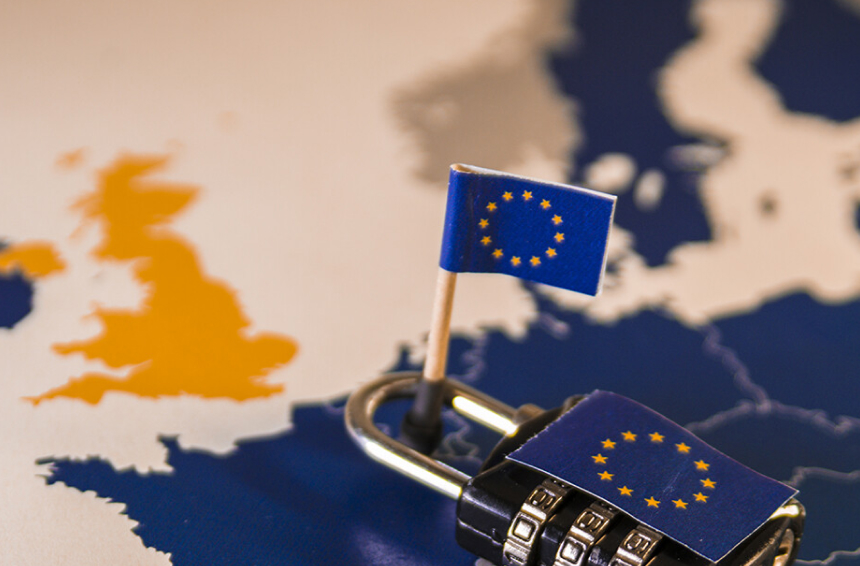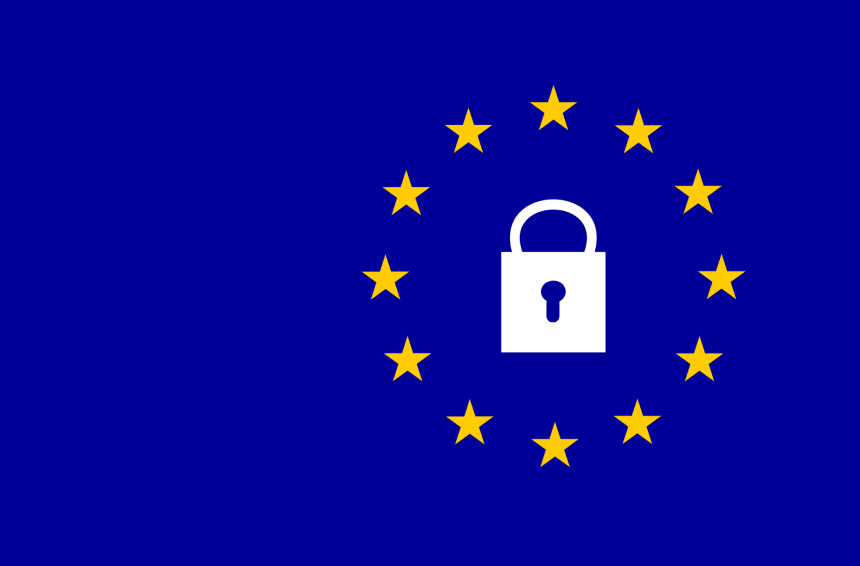The Current State of Personal Data Protection
1. Data Collection Without Consent
Many websites collect personal details like names, emails, and browsing habits without asking explicitly for consent. Hidden trackers and cookies do this behind the scenes, weakening privacy and user trust.
2. Data Breaches
Security gaps can lead to data breaches, exposing sensitive info like bank details. These breaches risk user safety and can damage a company’s reputation.
3. Intrusive Advertising
Organizations often rely on personal data for targeted ads, sometimes without people knowing. Techniques like fingerprinting and retargeting make tracking feel more invasive.
4. Weak Protection Measures
Even though data protection laws exist, it’s tough to put them into practice, especially for small businesses, which leaves them open to risks.
5. Poor Law Enforcement
Privacy laws exist, but without strong enforcement, many companies bypass proper privacy management and continue poor data practices.
Consequences of Poor Data Protection
Failing to protect data properly can harm user trust, incur regulatory fines, and damage a company’s reputation and revenue. Strong data protection measures are essential to maintaining compliance and building customer loyalty. Emerging technologies like blockchain and AI can help companies quickly identify and prevent risks, making data privacy compliance easier to achieve while maintaining trust.
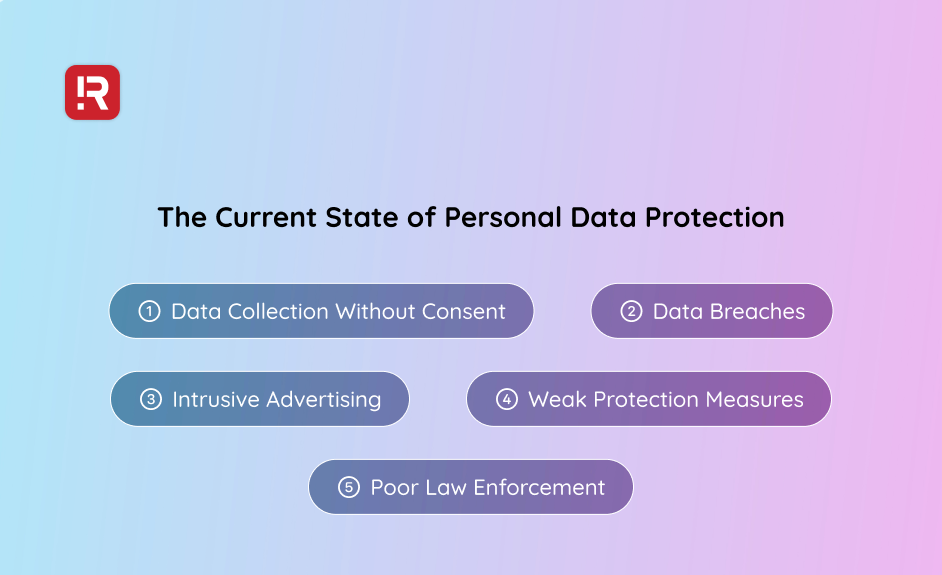
New Technology Trends in Personal Data Protection
-
Blockchain for Enhanced Security
Blockchain improves data security by providing transparency and making it impossible to alter data. Each transaction is recorded in linked blocks, forming an unchangeable chain.
For example, R Digital provides the world’s only ePrivacy Directive compliant Analytics & CMP tool that uses Concordium blockchain to securely record user consent when sharing data with websites. This ensures consent is clearly recorded and cannot be changed, with data used only when the user gives permission, maintaining compliance with privacy regulations.
-
Data Encryption and Privacy Protection Techniques
Data encryption protects data while it’s being transmitted, preventing unauthorized access. Additional techniques like anonymization and pseudonymization further protect privacy.
⮕ Anonymization removes identifying details, making data impossible to trace to an individual.
⮕ Pseudonymization replaces personal data with pseudonyms, which can be restored if necessary, like in healthcare systems where patient data is stored by code instead of names.
R Digital offers AesirX Shield of Privacy, an identity management platform that gives users control over their personal data when interacting with websites and online services, protecting their information from misuse.
-
Automating Compliance Processes
Automation tools help businesses easily verify and maintain compliance with data protection regulations. For example, R Digital provides a free Privacy Scanner tool that automatically checks whether a website uses beacons, third-party cookies, or collects data without user consent. This tool saves time, minimizes errors, and supports businesses in complying with legal requirements.
-
First-Party Data Storage
First-party data storage is becoming an important trend in personal data protection. Rather than relying on third parties to store data, businesses store data directly on their systems, providing better control over access and security. For example, e-commerce platforms can use a First-Party Server solution to store customer data on their servers, reducing the risk of data breaches or misuse.
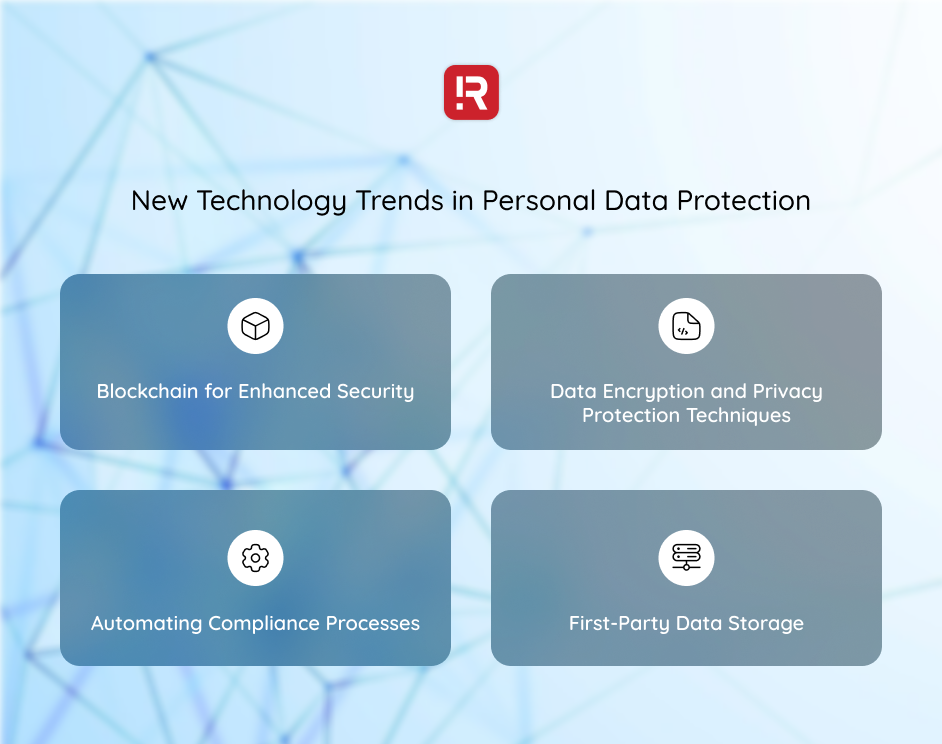
The Role of AI in Enhancing Legal Compliance
AI is transforming how businesses protect personal data and comply with legal requirements. By detecting security risks and offering practical solutions, AI helps businesses stay compliant and minimize potential threats.
⮕ Detecting Security Violations
AI can spot security and privacy breaches in real time. Using machine learning, AI analyzes data, identifies vulnerabilities, and immediately alerts businesses to fix issues, protecting user data and reducing risk.
⮕ Accurate Compliance Guidance
AI not only finds security and privacy problems but also gives clear advice on how to comply with data protection laws. With the use of AI in compliance, businesses receive step-by-step instructions to safeguard data and ensure legal compliance.
Exclusively from R Digital, AesirX’s Privacy Advisor AI, powered by GPT 4o, offers easy-to-understand guidance on data protection. After scanning your website with the Privacy Scanner for compliance, you'll receive a detailed report on privacy issues. You can then chat with Privacy Advisor AI to better understand the report and get advice on resolving the problems, helping you achieve full compliance with data protection laws.
How Your Business Can Apply AI and Technology
Protecting personal data is key not only for compliance but also for building customer trust. With advancements in AI and Blockchain, your business can now better safeguard data and meet legal standards.
Tools like Privacy Scanner, Privacy Advisor AI, and other privacy-focused solutions automate compliance checks and can help your businesses stay on top of data protection. These technologies reduce the risk of violations and protect user information.
Investing in modern security solutions can help your businesses comply with data protection laws, strengthen customer trust, and build a strong foundation for long-term growth.
Save money on your monthly costs: Explore R Digital's data protection solutions and join the Alliance Partnerships to receive a complete service package—from design to implementation—for a fixed monthly fee.
